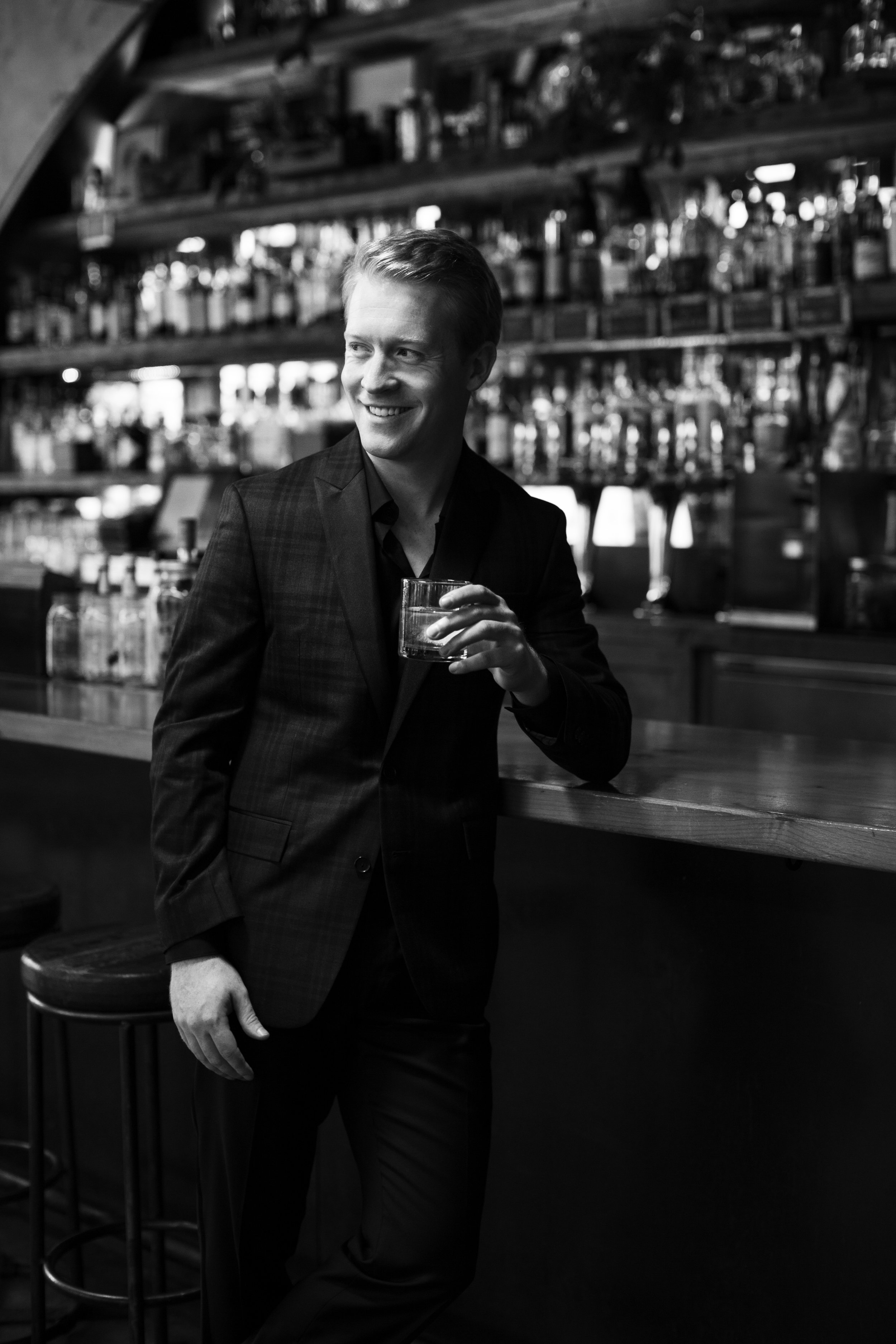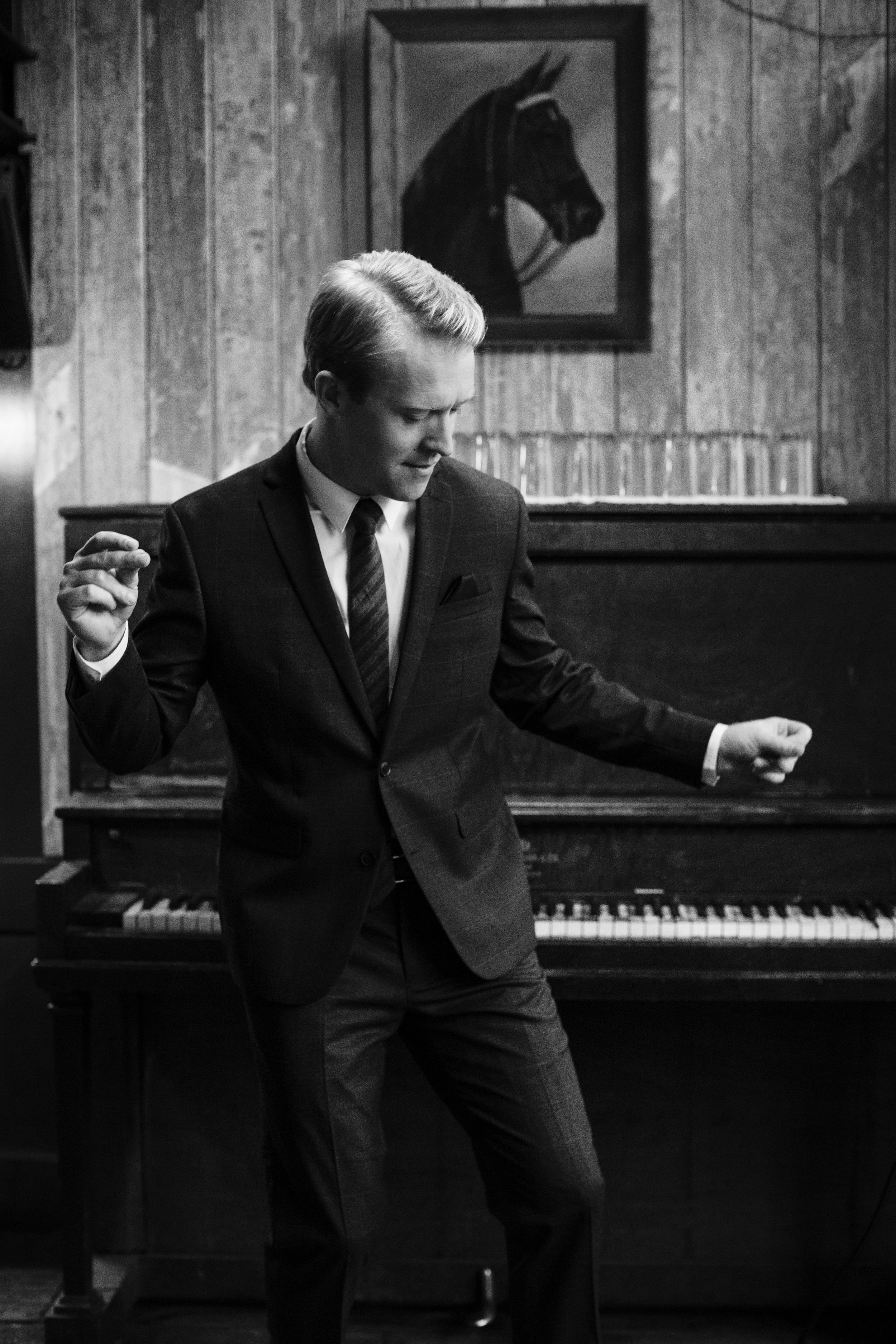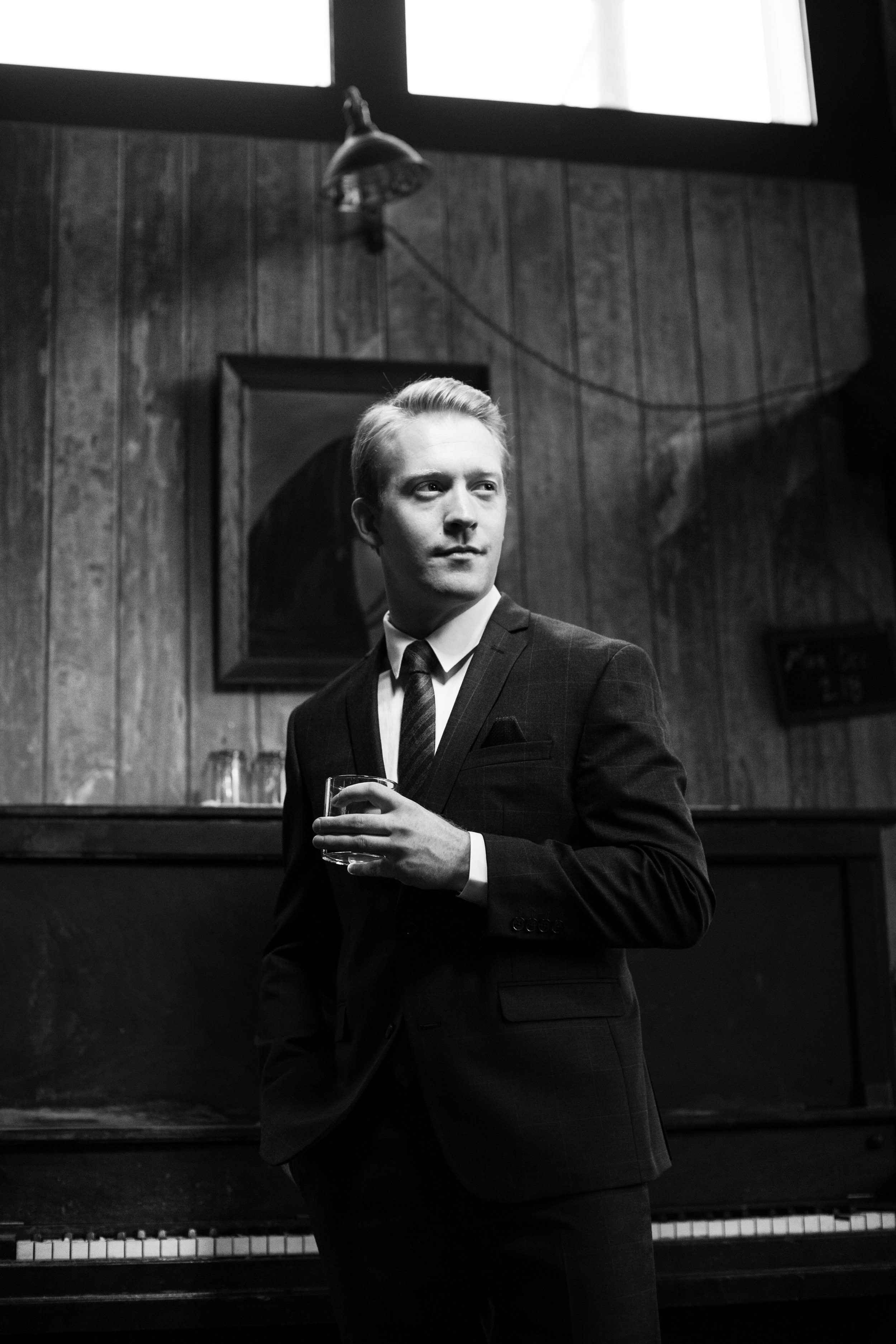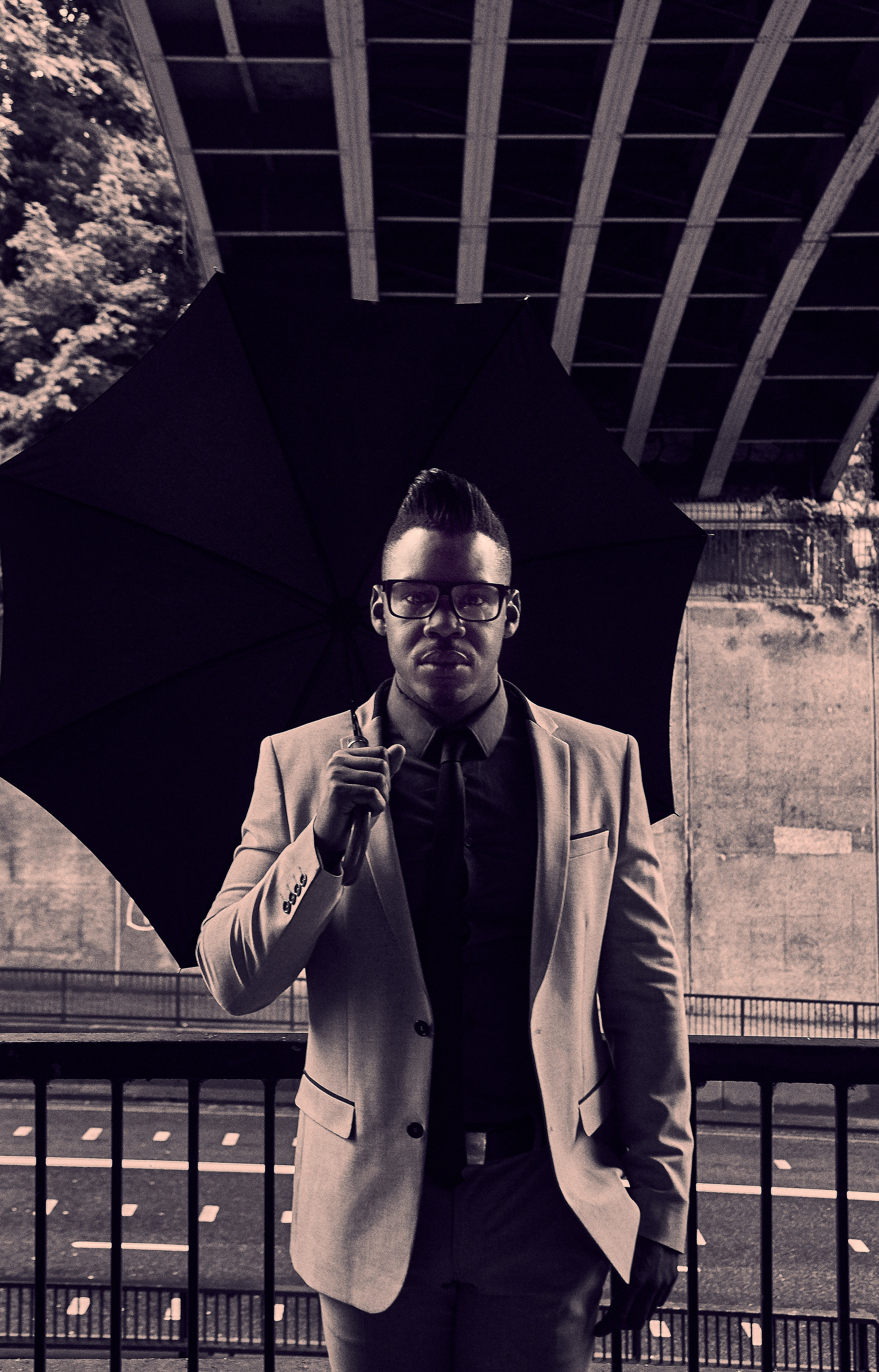WEBSITE | FACEBOOK | INSTAGRAM | SOUNDCLOUD | TWITTER | YOUTUBE | PRESS MATERIALS
“There’s something really brave…about being unabashedly happy.”
Hearing Jack Mosbacher’s voice for the first time is like stumbling on a sunflower in the middle of a city sidewalk. At first, you’ll wonder if it’s real (it is). Then you’ll want to take it home (you can). His thoughtfully crafted traditional hooks and cheerful Motown vibes have drawn comparisons to The Temptations, Hall and Oates, and Otis Redding, exuding the old school power of Alabama Shakes with the pop sensibility of Andy Grammer and Ed Sheeran . Mosbacher revives the best of past eras with timeless warmth and modern charisma. In a world of confusion, chaos, and division, he is determined to make you smile.
Jack’s music is his means of “accessing a higher joy” passed down from traditional greats of bygone eras. And at first listen, one can see why. His old-school style and joyful lyricism bear a uniquely innocent power. Invoking the past with an eye on the present and future, Jack Mosbacher’s original music is an uplifting delight for old souls of all ages.
“I had a teacher once tell me: ‘You’re either in the lighting business, or the heating business. You’re either doing something new, or you’re bringing forgotten warmth to people who need it. I’ve always wanted to be a combination of both.”
His journey into the ‘heating business’ began in early childhood, upon finding The Temptations in an old cassette drawer. It was an “unbelievable, mind-exploding moment” that ignited his spirit with fervor. But Jack hadn’t yet been exposed to the painful adversity his idols faced, or the turbulent era that he would himself enter as an adult. Today, Mosbacher harbors no illusions about what it means to honor their work.
“So much of American music and popular culture…was driven by heroes and geniuses of color, or from some kind of background that is not like mine,” he says. “The things I’ve seen, and my faith, have taught me that you really run into trouble when you’re not acknowledging who your influences are, and all the systemic injustices and hardships that inspired artists before me to write a lot of this music in the first place.”
Jack underwent a rigorous period of education – in school and in the real world - that would inform and empower his perspective. He eventually graduated from Stanford University (while playing on the baseball team and writing for the school paper) with Honors in Political Science. He credits this education for laying the bricks of his platform and social awareness. “The vast majority of people whose art has significantly shaped my life have looked different from me, and have gone through things I’ve never had to deal with,” he says. “There’s a huge sensitivity there. Everything white artists have done has been influenced by artists of some kind of ‘other.’ And the main thing that really strikes me about all of it is that I fell in love with this music before I knew what any of that was. There was an innocence there that I’m trying to retain while also being mindful of my own place in all of this. And a sense of purpose in being an ally, in respecting and advancing the message.”
Mosbacher is vividly aware of the dichotomy between innocence and struggle in music, particularly in regard to race and identity. “There is such a cultural importance, and a continued relevance, to acknowledge and respect. But music is also the one place where we can all come together, where we’re able to shed these differences and presuppositions in a way we can’t in any other part of our lives and our world.”
For Jack, authenticity is key. Audiences are more educated, connected, and responsive than ever. He trusts that they know when it’s real. “Regardless of how I look or the differences I have from artists who wrote this in the past, this music is my heartbeat. It raised me.”
His radiant sound has evolved to exude the old school power of Alabama Shakes and Leon Bridges, with the pop sensibility of Andy Grammer and Ed Sheeran. Today, Mosbacher aims to add happy elements to the next generation of soul. “There’s a lot of darkness out there,” he says. “Joy isn’t what you regularly see on the front page of the paper, or on your Facebook feed. I’ve been so incredibly fortunate, and it seems like the least I can do is to try to spread some light.”
Prior to pursuing music, Jack was an accomplished athlete and student. International affairs and human rights were (and are) deeply important to him. At Stanford, Jack played on the nationally ranked baseball team and was awarded a special grant to write a thesis on income inequality and oil politics in East Africa as part of an international development program. He has since traveled to 13 African countries and published pieces in Foreign Affairs and The Washington Quarterly; with that, a career in journalism and policy seemed like a foregone conclusion. But Jack’s family, friends, and mentors pushed him to follow his heart, and it called him to music and entertainment. Once he listened, he never looked back.
He dove headfirst into musicals on the east and west coasts, dazzling audiences in cabaret shows and Off-Broadway hits such as Sondheim’s ‘Merrily We Roll Along’ and ‘Napoleon.’ But as Jack prepared for his first headline cabaret show in San Francisco, one of his oldest friends was killed in an accident.
In the wake of unthinkable loss, mourning friends and loved ones still came to the show, looking for an evening of relief. Being able to raise the audience’s spirits redefined the concept of entertainment for him. “The purpose of my music became solely to lift everyone in the room out of whatever darkness they are fighting and join them in the light, even for a fleeting moment.”
Since recognizing his true purpose, Jack’s songwriting has been unstoppable. The San Francisco Chronicle heralded the young talent as “a star on the rise.” But Mosbacher stays rooted in his craft and the responsibility he feels to his listeners. His only goal is for people to leave his shows happier than when they came.
“Music has never been my means of justifying myself, to myself or to anybody else,” he says. “It’s simply my way of giving something back.”
Mosbacher’s recent collaboration with Nerf Herder’s Linus of Hollywood and Letters to Cleo’s Michael Eisenstein resulted in over a dozen new songs, set for release in 2018. His inaugural single, “The Second Time Around,” debuted on December 1. “These songs are full of energy and an almost naïve innocence,” he says. “They’re the best representation of what I’ve wanted my music to be to this point, and I hope that the trajectory is only upward as we continue to write, record, and perform.”
Mosbacher fell in love with music by hearing The Temptations, but he never could have guessed that his future would bring them front and center. David Ruffin, the band’s original lead singer, was forced to abandon a solo record following struggles with addiction and a tussle with Motown Records. 30 years later, an independent label acquired the album and quietly released it. Mosbacher jumped at the chance to honor his late hero’s forgotten work. In collaboration with Michael Eisenstein and an eclectic array of musicians, Mosbacher covered four of Ruffin’s previously unreleased songs in a classic Motown session: all of the instruments in one room, making music until they got it right.
“I’ll never be David Ruffin,” he says. “That was never the point. It was just incredibly exciting and fulfilling to pay my respects to the guy I grew up trying to be.”
In early December, Mosbacher closed out a home-run year by performing new songs at the Peppermint Club in LA. He’s scheduled to kick off 2018 with a springtime tour of the West Coast, appearing with Train, Michael Franti, Robert Randolph, and more on the fifth annual Sail Across The Sun cruise.
But even as big breaks roll in, Jack stays humbly nonchalant. “Exuding unapologetic joy and happiness has never really been ‘the cool thing,’” he says. “Fortunately, I don’t really care about being that cool.”
Given his unique talent and authentic drive, Mosbacher’s rise to musical prominence seems almost inevitable. But whether good fortune comes knocking or not, Jack is too happy to care.
“…I know what I love, and I know why. And I want to bring just as much of it into the world as I can before I’m through.”
We’re listening.









